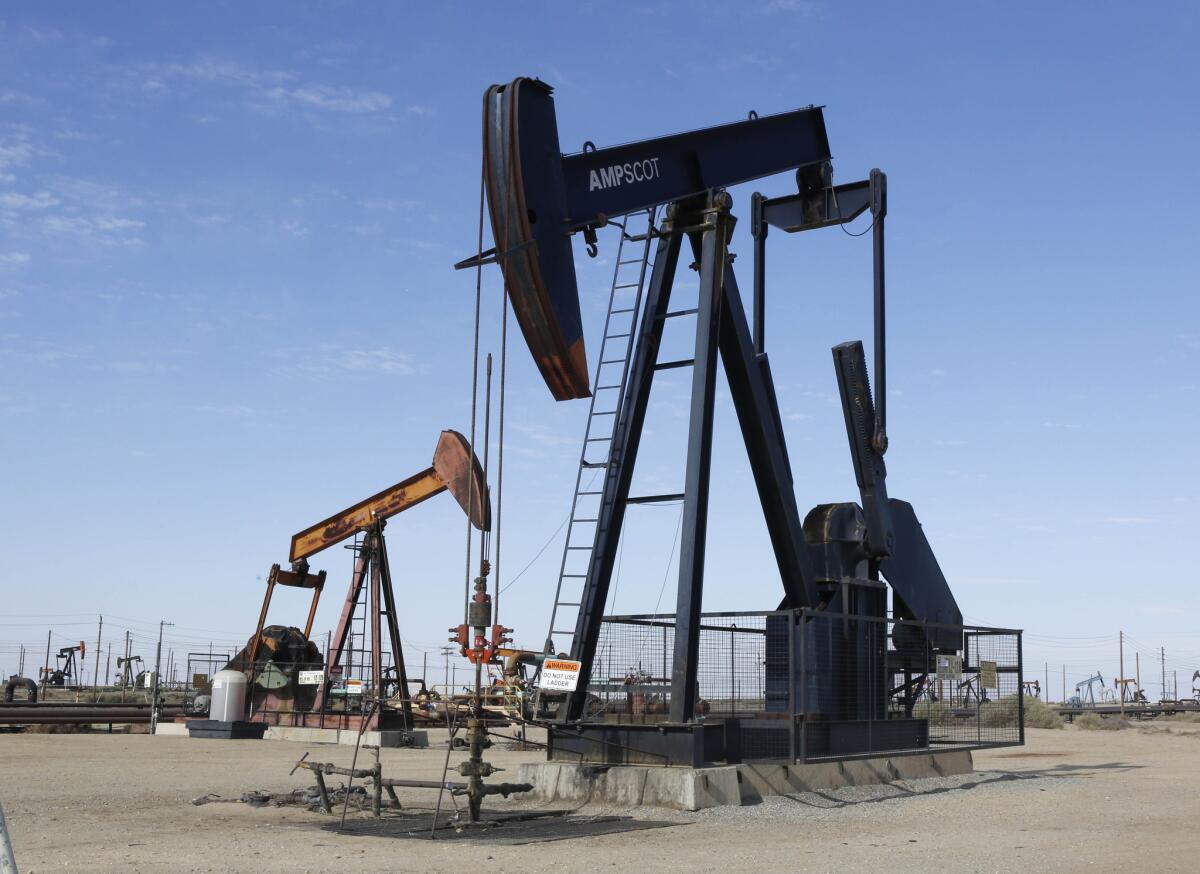A fracking bill gone bad

Some level of regulation of hydraulic fracturing, or fracking, is preferable to none. Except if the helpful aspects are canceled out by more problematic ones. That is the case with SB 4, passed by the Assembly on Wednesday. It goes back to the state Senate for final vote, and we hope it’s stopped there. If not, Gov. Jerry Brown should veto it.
FOR THE RECORD:
Fracking: A Sept. 12 editorial about a California bill to regulate hydraulic fracturing, or “fracking,” said that SB 4 “could exclude many fracking projects from meaningful environmental review.” It should have added that legislators expect meaningful review to begin after the state completes a study of fracking. The study is supposed to be finished by mid-2015. —
SB 4 is the state’s first attempt to exert oversight over fracking, a controversial process that involves the high-pressure injection of water, sand and chemicals to fracture rock and release the oil or gas locked within. Fracking has taken place in California for years, but it has been limited in scope, with most wells located in a remote area of Kern County. Now, with the revelation that the Monterey Shale in the Central Valley might contain 15 billion barrels of frackable oil, the practice is expected to boom.
There are reasons to be concerned about possible effects on groundwater and air quality. Even more worrisome for California is the danger of setting off seismic activity; studies in other states where fracking is more established have linked earthquakes to the injection of wastewater into wells, even in areas that are not quake-prone.
The Legislature should be embarrassed by its reckless attitude on this issue. Several bills to put the brakes on fracking until more is learned, similar to New York state’s moratorium on the practice, died during this legislative session. SB 4, written by Sen. Fran Pavley (D-Agoura Hills), is the one bill remaining. Rather than halt fracking, it sought to regulate it.
Note the past tense: In recent amendments, the key regulatory element of the bill was so weakened that it is no longer recognizable. SB 4 would still require disclosure of the chemicals used in fracking. It also would require an overarching environmental impact report as well as a scientific report on the potential effects of fracking in the state. These are both worthwhile.
But the bill now could exclude many fracking projects from meaningful environmental review. In addition, wording that says the state “shall” approve permits until early 2015, when the scientific report will be finished, could eliminate the governor’s authority to issue a moratorium even if real dangers were found.
The amendments have led various environmental organizations to withdraw their support. We previously endorsed the bill, and Pavley deserves praise for trying, but at this point SB 4 is so flawed that it would be better to kill it and press for more serious legislation next year.
More to Read
A cure for the common opinion
Get thought-provoking perspectives with our weekly newsletter.
You may occasionally receive promotional content from the Los Angeles Times.










